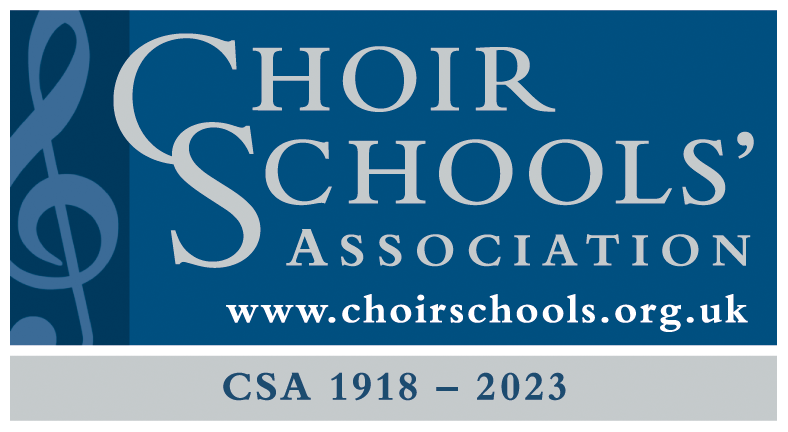Choir School
There are 22 Cathedral Choristers and 16 College Quiristers at The Pilgrims’ School, making a total of 38 choral scholars among some 240 Pilgrims. Known in school as 'the Cs and Qs', or, 'the reds and the blues', they enjoy the same rounded education and opportunities as their classmates. For a musical boy, it is an extraordinary opportunity, giving him unique skills and benefits that will be invaluable throughout his whole life.
The happiest days of my life.
- Journalist, Jon Snow
Contact:
Email: admissions@pilgrims-school.co.uk
Telephone: +44 1962 854189
Watch these films to find out what it's like to be a Chorister and a Quirister
I still use many of the skills I learnt as a Chorister today.
Sir Alistair Cook
Our Choristers and Quiristers receive what is arguably the greatest musical education possible for a young boy. Singing daily to the highest standard, our choral scholars acquire an instinctive appreciation of music and an enviable knowledge of choral works, ranging from mediaeval plainsong to new works commissioned by modern composers. All the boys learn to sight-read.
The school’s music curriculum complements the boys’ vocal training, with theory lessons, composition and history of music completing their rounded musical education.
I owe my entire career to my experience as a Chorister.


Even the sportiest of boys can manage to be both a fully committed sportsman and a choral scholar.
Questions and Answers about our Choirs and the audition process
What is the difference between Choristers and Quiristers?
It can be a little confusing when trying to describe the differences between the Cs and Qs, because they are, in fact, very similar. They are all pupils at Pilgrims' and are all boarders in a thriving community. For most of the school day, their routine is no different to the rest of the school. They attend all lessons, they all play sport and are available for matches, and they have the same school-wide friendship groups as everyone else at the school.
The time commitment to their choral duties during term time is pretty much identical: the Choristers sing more services each week, but while the Choristers are in the Cathedral, the Quiristers have either a service, choir practice, or instrumental practice.
There is a slight difference in their sound. This is partly because of the different influences of the two Directors of Music, partly because of the acoustics of the two different venues, partly because of who sings in the choir (the Cathedral ‘back row’ are adult professional singers, salaried by the Cathedral; the College back row are College senior boys and staff), and partly because of their repertoires - the Quiristers sing more secular music than the Choristers.
The main difference which tends to be considered by parents choosing which choir to join is the boarding commitment at the end of each term. The Quiristers are mostly term-time only, the Choristers will stay on for a week at the end of each term, for Choir Time. Find out more about Choir Time here.
Can you swap between being a Chorister and a Quirister?
There is no swapping between choirs, boys stay with the choir to which they have been elected - but the two Foundations do join forces each term to sing a special Evensong together. Both choirs are highly respected and each offers an extraordinary opportunity for your son, with The Pilgrims’ School sitting at the heart of all they do.
Can boys learn an instrument as well?
Nearly all of our choral scholars learn to play the piano and an orchestral instrument. Instrumental practice is timetabled and supervised by the school’s music staff, establishing invaluable good practice habits for the future. Many Choristers and Quiristers attain high ABRSM grades and, perhaps even more importantly, gain an understanding and appreciation of a breadth of music beyond the graded syllabus.
What about boarding?
Both choirs are in school at the weekends, but with a slightly different routine. Whenever possible, all the boys may go home for part of the weekend. The school has exeats twice each term, which is a weekend off for the school. Both choirs have some, but not all of the exeats.
The Junior Quiristers (Year 5) board at Main School and move to Q School when they are in Year 6. The Choristers all board at Main School.
Where next for Choristers and Quiristers?
Nearly all of our choral scholars leave Pilgrims’ with a music scholarship or exhibition awarded by their chosen senior school. Their advanced musicianship is widely recognised, as are the impressive characteristics of a chorister’s training – confidence, teamwork, organisation, and a commitment to excellence.
What does a Choral day consist of?
Aside from choir practices and services, the Cs and Qs follow the same timetable and curriculum as the rest of the school. Academic lessons, music tuition, sport, activities and essential ‘time out’ are arranged meticulously by the school to fit around the boys’ various singing commitments.
Inevitably, a special concert, service, broadcast, filming or recording will occasionally clash with lessons. The boys in both choirs are assigned a tutor who takes great care to ensure that academic continuity is maintained for each of their tutees. The tutor will also ensure that the boys are happy, coping with their busy schedule, and thriving on doing what they love best.
What Choral Scholarships are available?
Financial circumstances should be no obstacle to a boy becoming a Chorister or Quirister. Substantial choral scholarships are awarded to each boy and additional means-tested bursaries are available, worth up to 100% of the full boarding fee (per annum). The Choral Foundations also pay for singing lessons and tuition for one of the musical instruments learned. If you would like more information about choral funding, please contact the Registrar, Emma Short, at the school.
How do I know if my son could be a Chorister or Quirister?
The first step is to contact the school when your son is 7 or 8 years old (but no earlier than the summer term of Year 2) to arrange a very informal pre-audition and a chat with Mr Andrew Lucas, Director of Music and Organist for Winchester Cathedral, and Mr Dónal McCann, the Director of Music for Winchester College Chapel Choir.
The informal audition is a low-key opportunity for them to hear your son sing, and for him to try out the same aural and voice tests that will be used at the formal auditions. No previous training is needed, but enthusiasm and a passion for singing are very important!
After they have heard your son sing, Mr Lucas and Mr McCann will chat with you about your son's voice and potential, and tell you if they would like him to come to a formal audition. If your son is not asked to audition, they will explain their decision, which we hope will be helpful. Every choir looks for different qualities in their choristers, and your son may well be successful elsewhere.
What happens in an informal audition?
An informal audition is casual, relaxed, and chatty. Your son will be asked to work through a series of simple ear and vocal exercises. He does not need to have any previous experience, the Director of Music will explain everything carefully to him and will offer him lots of help. Your son will be asked to:
- Sing back individual notes played on the piano
- Clap the rhythm of a short phrase after it has been played twice on the piano
- Sing back a short melody after it has been played twice on the piano
- Pick out individual notes from a group of 2, 3, or 4 notes played on the piano
He will also be asked to sing a short song. The Directors of Music will use it to hear your son’s voice and to see how he responds to their direction. It needs to be something that your son knows confidently and is happy to sing, once with piano accompaniment and possibly again, unaccompanied. It can be something very simple - a hymn, a carol, or something from a musical. If in doubt, please don’t hesitate to ask.
Your son will also be asked to read aloud from an unseen text. This is because the choir has to learn new music all the time, and the boys need to be able to read the words confidently on sight. He does not have to be able to read music - he will learn that later, once he starts his training.
What happens after the informal audition?
If your son is invited to audition formally, he will first need to come for a taster day at the school, which includes our entry tests. He cannot come to a formal audition without an offer of a place at Pilgrims'. If you have not already done so, you will want to visit the school, meet the Headmaster, the school’s Director of Music, the teachers, the boarding team - everyone who will be looking after your son (and you!).
Once your son has been offered a place at the school, your next job will be to decide which choir you would prefer him to join. Pilgrims' is unique in having two professional choirs, which makes your life a bit more complicated! You must decide which choir you would like your son to join before he comes to a formal audition. We suggest that you and your son sit in on a choir rehearsal and hear both choirs sing at Evensong, meet some of the Choristers and Quiristers, and talk with their parents. All of this can be arranged through the Registrar.
When are the auditions?
An informal audition can be arranged at any time throughout the academic year, by individual arrangement with the Registrar.
Quirister auditions are held when a boy is in Year 4, to join the choir in Year 5 (aged 9/10).
Chorister auditions are held when a boy is in Year 3, to join the choir in Year 4 (aged 8/9).
On occasion there may be places available outside these year groups, please feel free to check with Admissions.
Can my son join the School without a Choral place?
Yes. Your son may still have an offer of a place in the school, even if they are not offered a place in the choir. Your musical son will certainly benefit from the great wealth of choral and instrumental opportunities, as well as everything else that the school can provide as one of the top prep schools in the country. The Registrar will be pleased to discuss the options with you.








